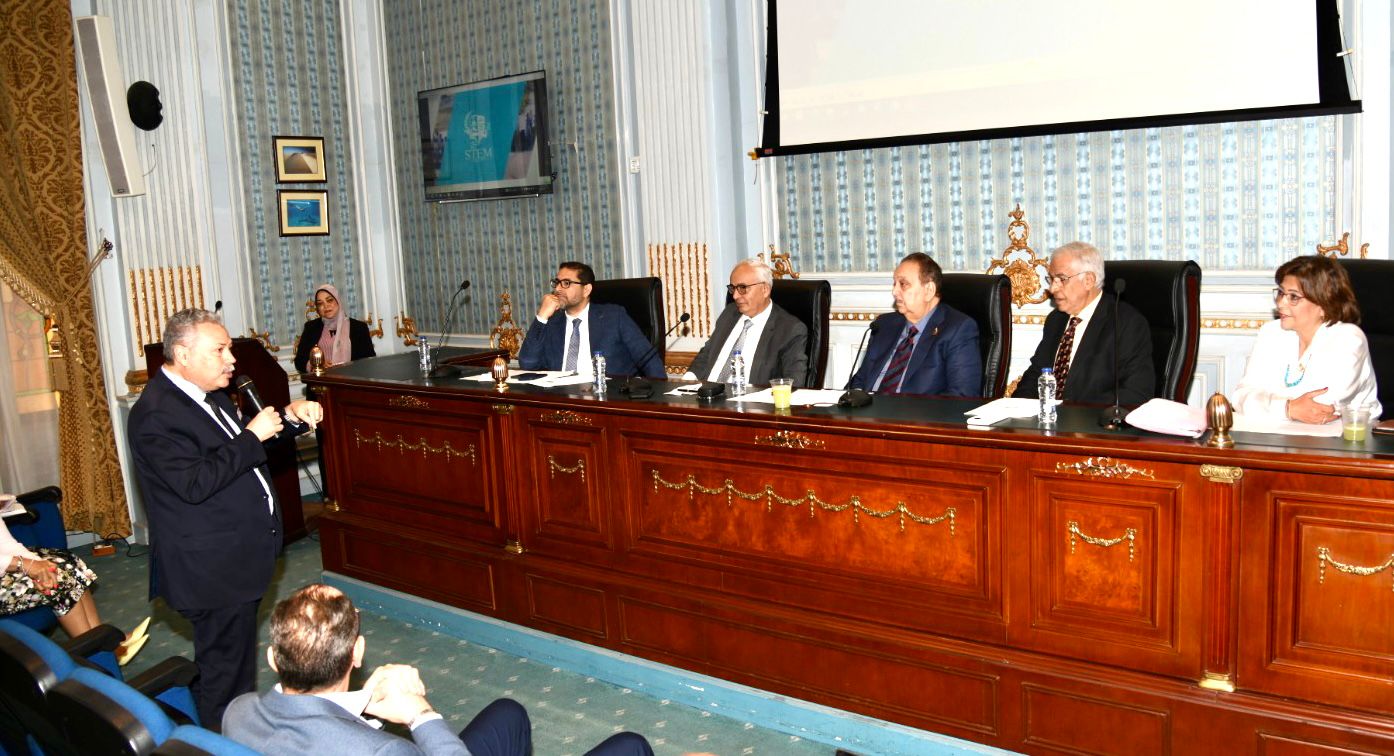The Minister of Education reviews before the Senate Committee on Education and Scientific Research the ministry's policy in STEM schools

Dr. Reda Hegazy:
The Schools of Excellence for Science and Technology receive the attention of the political leadership to nurture the gifted and gifted students and develop their abilities
STEM schools are a bright spot in Egyptian education, and their curricula are based on the integration of different subjects and the design of learning outcomes that are in line with national and international standards.
Dr. Reda Hegazy, Minister of Education and Technical Education, affirmed that schools for outstanding students in science and technology receive the attention of the political leadership to care for the gifted and gifted and develop their abilities, pointing out that “STEM” schools are a bright spot in Egyptian education.
Dr. Reda Hegazy added that the ministry is working to expand the establishment of these schools nationwide, as the number of these schools reaches 19 in various governorates, and two schools are scheduled to be established during the next year.
This came during the Minister's participation in the meeting of the Education, Scientific Research, Communications and Information Technology Committee in the Senate, in the presence of Dr. Nabil Debes, Chairman of the Committee, Major General Ahmed Al-Badri, Deputy Committee, Dr. Dr. Aziza Ragab, supervisor of the General Department of STEM Affairs, and Walid Maher, Director General of the General Department of Political Communication at the Ministry.
The minister reviewed the ministry’s policy that it is implementing through STEM schools, explaining that these schools accept those with a preparatory certificate with a score of no less than 98%, and they are subject to tests by the National Examinations Center in intelligence and scientific abilities, pointing out that the turnout These schools are very dense.
The minister also indicated that students are assigned to do "Capstone" projects, which represent the practical application of what they have studied in the various academic subjects. and relate what he learns to real life.
Dr. Reda Hegazy continued that the curricula of "STEM" schools are based on the integration of various subjects, and the design of school-specific learning outcomes that are in line with international standards, as well as a framework for curricula linked to international curricula, stressing that "STEM" schools help prepare graduates who are able to solve problems, Innovation, invention, self-reliance, and logical thinking.
The minister said that students who graduate from these schools are accepted into Egyptian universities through the so-called flexible ratio, in addition to obtaining scholarships from abroad or grants from international universities.
The minister also stressed that the STEM model is one of the most important successful educational experiences in Egypt, through which the Egyptian educational system was able to achieve many international awards and provide many innovations that were adopted by all state institutions, and many of its students were able to achieve advanced global positions that have won With praise from different countries of the world.
During the session, Representative Heba Makram, a member of the Education, Scientific Research, Communications and Information Technology Committee, reviewed a proposal that includes changing the name of the Schools of Excellence in Science and Technology from “STEM”, meaning the teaching of science, technology, engineering and mathematics, to “STEAM”, meaning the teaching of science, technology, arts, engineering and mathematics. By adding the study of arts to the subjects taught by students in these schools, stressing that art plays a vital role in promoting the values of teamwork, diversity and freedom of expression, encouraging pluralism and learning about different cultures through their arts, and then opening up to the world.
Dr. Reda Hijazi commented on the proposal that the curricula in the Schools of Excellence for Science and Technology are integrated, and they contain courses for art and physical education, and the technical aspect is applied on the ground, and students of STEM schools participate in some activities, indicating that the study of the proposal will be considered.
During the session, Dr. Reda Hegazy answered some of the audience's inquiries regarding the follow-up of graduates of outstanding schools for science and technology, as he confirmed that he would direct a follow-up study for these students through the research centers in the ministry.
More about reviews
